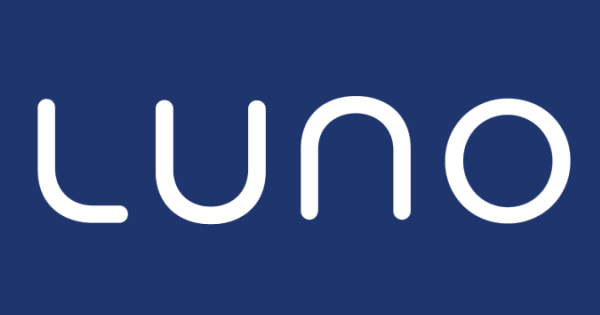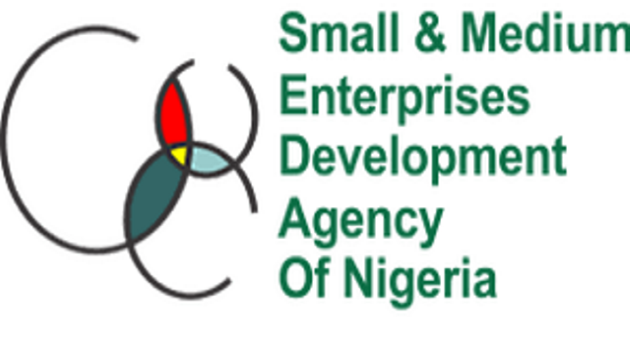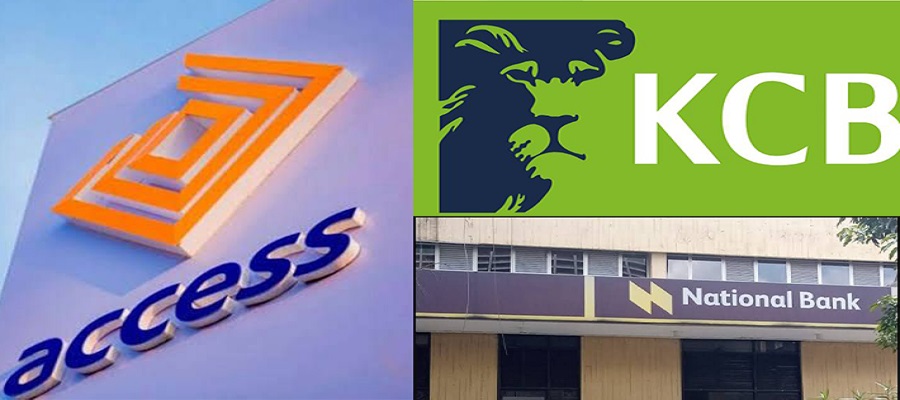E-Financial
LUNO Achieves 300% YoY Growth with 7M Customers

Luno, leading global cryptocurrency platform, recently announced that it has reached the momentous milestone of 7 million customers worldwide, just seven weeks after passing 6 million customers.

2021 has seen exponential growth in the business, with January 2021 seeing a 60% increase in the number of app installs compared to December 2020 and over 300% growth year-on-year when compared to January 2020.
In 2020, Luno’s customer base in Africa grew by 2.3mn to 4.7mn and between January 2020 & January 2021, installs of company’s app across the continent have surged by 271% alongside its trading volume in Africa, which grew over 12x from $555mn to $7bn.
Luno’s expansion is telling of the bigger-picture market demand for cryptocurrencies globally, as the industry continues to prove its reputation as building a sustainable financial infrastructure.
The crypto industry as a whole has seen a momentous year of growth, heavily spurred on by the entrance of institutional investors adopting bitcoin due to its store of value properties.
The asset, which has become renowned as digital gold, has become more attractive to investors amidst inflation concerns as a result of increased fiscal and monetary stimulus. The 2020 spike bitcoin experienced was also accelerated by its growth in global adoption as the number of global cryptocurrency users surpassed 100 million in Q3 2020.
Over the last few years, infrastructure in parts of the world that could not previously support the crypto market has improved substantially.
Luno has played an essential role in these developments, particularly in major African economies and Asia-Pacific, where it has enabled efficient markets for customers to trade crypto in a safe and secure way through local currency. In 2020 alone, Luno provided 1.1 million Asians access to the crypto markets, growing its Asian customer base by 300,000.
Since Luno’s acquisition by Digital Currency Group (DCG) in September of 2020, Luno has seen the number of active users increase by 167%, whilst the number of app installs has increased 119%.
As of the 25th of January, the average Luno user held over $7,000 USD in their wallet, up 56% from the 30th December 2020. Luno was ranked in the top six cryptocurrency exchanges worldwide in the latest CryptoCompare Exchange Benchmark, whilst also receiving the top tier AA rating.
Founded in 2013 by Marcus Swanepoel, a former investment banker, and Timothy Stranex, who previously worked for Google as a software engineer. Today the company is headquartered in London and has nearly 400 employees across offices in London, South Africa, Malaysia, Indonesia, Nigeria and Singapore with customers in 40 countries globally, with over 10% growth in staff numbers since March 2020.
The beginning of 2021 marks the start of a period of exponential growth for Luno. This growth is in part down to the simplicity of its online and mobile platforms, offering education, bank-grade security and self-regulation, along with its proactive stance of working with governments, regulators and banks to safely increase access to cryptocurrencies around the globe.
This growth can also be partly attributed to the huge growth in interest surrounding cryptocurrencies in 2021 with the likes of Tesla investing in Bitcoin, US Bank BNY Mellon setting up a Crypto Unit, and Mastercard accepting crypto payments.
Marcus Swanepoel, CEO and Co-Founder of Luno says: “The past twelve months has hastened the adoption of crypto globally. While a lot of the press has been around institutional adoption, behind all the headlines retail adoption has been growing at an arguably even more fanatic pace (With Tesla just announcing they will start accepting Bitcoin as payment).
“The pandemic has exacerbated the need for digital currencies, and here at Luno, our mission is not only to help educate people about cryptocurrencies and how to use them today, but in the long run leverage the power of this technology to upgrade the world to a better financial system.
“We want to make cryptocurrencies accessible in a secure and compliant way to everyone, regardless of who they are or where they are located. In 2021, we expect to continue this exponential growth, on track to reaching our goal of 1 billion customers by 2030.“
CEO Barry Silbert from Digital Currency Group says: “Luno has seen phenomenal growth over the past 12 months and is one of the fastest-growing companies in the DCG family. We are proud to be part of this success and will continue to make significant investments to support Luno’s commitment to drive global economic and social change through the transformation of traditional financial services.”
E-Financial
SEC, SMEDAN To Launch Campaign on SME Financing

The Securities and Exchange Commission (SEC) is set to collaborate with the Small and Medium Enterprises Development Agency of Nigeria (SMEDAN) to implement joint nationwide sensitization campaigns on “Financing SMEs through the Capital Market.”

Director-General of the SEC, Emomotimi Agama, said this during a meeting with SMEDAN in Abuja on Tuesday. He said both agencies would co-brand financial literacy content and SME investment-readiness toolkits.
Agama explained that the meeting aimed to initiate a strategic collaboration between the SEC and SMEDAN to support small business financing through access to the capital market.
The engagement, he noted, aligns with the mandate of the SEC’s newly established Office of Small Business Advocacy (OSBA), which serves as the primary interface between the Commission and SMEs seeking to raise capital via securities issuance.
According to him, SMEs represent over 90 percent of businesses in Nigeria and contribute significantly to employment and GDP.
Despite their importance, most SMEs face major obstacles in accessing long-term, affordable financing.
He said the SEC, through the OSBA, is actively working to broaden access to market-based financing instruments for SMEs.
He noted that SMEDAN, as a statutory stakeholder in the MSME space, has deep knowledge, nationwide networks, and relevant data infrastructure to support SME development.
A collaborative framework between the SEC and SMEDAN, he added, will foster synergies for policy innovation, capacity building, and SME investment readiness.
Agama further disclosed that the Commission seeks to formalize a partnership with SMEDAN to implement coordinated interventions such as secure access to reliable and verified SME data to enable capital market outreach and segmentation, joint use of SME analytics for market readiness assessments and policy insights, and training programmes for SMEs on capital market funding opportunities, governance, and compliance.
He added that both agencies hope to co-host a National SME Capital Market Summit in the third or fourth quarter of the year to showcase financing opportunities for SMEs.
He emphasized the need to harness Nigeria’s entrepreneurial potential through inclusive capital formation, saying, “There will be no economy without the capital market.
“The capital market is the engine room of any economy. The reason companies are not approaching the market is due to lack of funds.
“We are here to change the narrative because we know that SMEs are the backbone of our economy.
By working with SMEDAN, we can create enabling frameworks to help these businesses access long-term funding.”
Also speaking, the SEC’s Executive Commissioner, Legal and Enforcement, Frana Chukwuogor, noted that under the new Finance Act and SEC regulations, small business owners can raise funds through the capital market, either through equity or debt, to grow their enterprises. She added that the capital market can provide the financial boost SMEs require.
In his remarks, the Director-General of SMEDAN, Charles Odii, welcomed the collaboration, describing it as a game-changer for Nigeria’s SME landscape.
He said that the alliance with the SEC aligns perfectly with SMEDAN’s mandate to upscale and formalize the informal sector.
By introducing SMEs to non-traditional funding avenues like bonds, equities, crowdfunding, and other market instruments, he said more businesses can be empowered to scale sustainably.
The meeting concluded with a shared commitment to establish a national working team to streamline SMEs’ onboarding processes for capital market participation, develop targeted investor education programmes, and create innovative financing models tailored to the needs of small businesses.
This partnership marks a pivotal step toward inclusive economic development and is expected to catalyze job creation, industrial growth, and financial inclusion across the country.
E-Financial
CBN Pumps in Additional $150m into Forex Market to Safeguard Naira

Central Bank of Nigeria (CBN) has reportedly injected $150 million into the foreign exchange market at the beginning of the week to keep the naira safe under pressure.

With sustained forex market intervention, a slew of analysts have formed a consensus that the exchange rate would trade range-bound in the second quarter.
Last week, the Apex Bank sold $635 million to authorized dealer banks in FX market amidst efforts to strengthen liquidity levels in the market.
A potential slowdown in US dollar supply could trigger negative exchange rate movement, according to analysts.
Again, the naira faced another round of demand pressure in the official window as offshore investors continued to exit positions in naira assets.
To stem the negative impacts of unusually high demand for US dollars, the CBN intervened with a sale of $150 million at rates between $/₦1,593.20 and $/₦1,623. Throughout the session, the USD/NGN pair moved within a range of $/₦1,593.10 to $/₦1,630, AIICO Capital Limited reported.
Data from the CBN showed that gross external reserves fell to $38 billion in the absence of additional inflows and a slowdown in oil FX receipts.
In the global commodity market, oil prices fell on Monday despite some positive signals, including exemptions for electronics from U.S. tariffs and a sharp rebound in China’s March crude imports.
These factors were overshadowed by ongoing fears that the prolonged U.S.-China trade war could hurt global economic growth and weaken fuel demand. Brent crude dropped 42 cents, or 0.65%, to $64.34 a barrel, while U.S. West Texas Intermediate (WTI) crude slid 53 cents, or 0.9%, to $60.97.
Meanwhile, gold prices declined over 1% after reaching a new record earlier in the day.
Improved risk sentiment following the tariff exemptions on smartphones and computers contributed to the dip. Spot gold fell 1.1% to $3,200.11, while U.S. gold futures declined 0.9% to $3,216.20. #CBN Injects Additional $150m into FX Market to Safe Naira First Holdco Falls below N1 Trillion in Equities Market
E-Financial
Kenyan CBN Okays Access Bank Full Acquisition Of NBK

Access Bank, a subsidiary of Nigeria’s Access Holdings Plc, has received final regulatory approvals to acquire 100 per cent shareholding of the National Bank of Kenya (NBK), marking a significant milestone in the lender’s strategic expansion across East Africa.

The Central Bank of Kenya (CBK) confirmed on Monday that it granted approval for the transaction on April 4, 2025, under Section 13(4) of the Banking Act.
In a coordinated move, Kenya’s Cabinet Secretary for the National Treasury and Economic Planning also gave the green light on April 10, 2025, pursuant to Section 9 of the same Act.
Access Bank is acquiring NBK through a full purchase of shares from KCB Group Plc, which has held complete ownership of the bank since 2019.
As part of the acquisition, selected assets and liabilities of NBK will be transferred to KCB Bank Kenya Limited, a wholly owned subsidiary of KCB Group.
The CBK and the Treasury have both approved this transfer as an integral component of the broader transaction.
According to CBK, the acquisition will be finalized upon the full completion of agreed terms between Access Bank and KCB Group. Once completed, Access Bank will officially own and operate NBK, positioning itself as a stronger competitor within Kenya’s dynamic financial services landscape.
The acquisition of NBK aligns with Access Bank’s long-term strategy to scale operations in East Africa and deepen its presence in Kenya, one of the continent’s most competitive banking markets.
The move is expected to enhance Access Bank’s capacity to deliver innovative digital and financial solutions to a broader customer base in the region.
The CBK welcomed the acquisition, stating that the transaction is consistent with its objective to promote the development of a sound, stable, and inclusive financial sector.
The regulator expressed confidence in Access Bank’s capability to ensure continuity of services at NBK while strengthening financial resilience in the market.
“The acquisition will enable Access Bank to leverage NBK’s infrastructure and customer base, thereby enhancing service delivery and financial inclusion in Kenya,” the CBK noted.
Access Bank’s expansion reflects a broader trend of cross-border banking consolidation in Africa, as regional financial institutions seek to build scale, diversify risk, and foster long-term growth across key markets.

 E-Business2 days ago
E-Business2 days agoNITDA Warns Against Fake Google Play Store

 General News2 days ago
General News2 days agoLagos Commences Integration of NIN with State Single Social Register

 News2 days ago
News2 days agoNOA Uncovers Fraud by Banks, Universities in Students Loan Scheme

 E-Financial2 days ago
E-Financial2 days agoUBA Redefines Banking with Next-Gen PoS Terminals and Revamped MONI App

 E-Financial2 days ago
E-Financial2 days agoSEC Bans Unregistered Digital Asset Exchanges, Online Forex Platforms

 E-Financial2 days ago
E-Financial2 days agoAfrica Loses $88.6Bn Yearly to Corruption- ECOWAS

 E-Financial2 days ago
E-Financial2 days agoNIBSS Heads to Court to Recover N4Bn Lost due to System Glitch

 General News2 days ago
General News2 days agoNigeria Records $6.83Bn Balance of Payments Surplus in 2024 Amid Economic Reforms



























